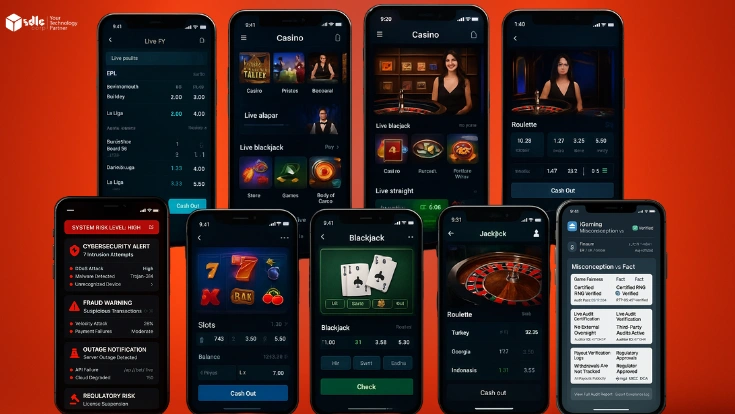Introduction
In recent years, the popularity of online gambling has soared, with millions of people worldwide engaging in activities like poker, sports betting, and online casino games. However, as gambling becomes mainstream, one crucial question arises: What happens when you win money? In France, how your online gambling winnings are taxed depends on several factors, including whether you’re a casual or professional gambler. The rules may seem complex, but understanding them is crucial to avoid tax-related issues.
This blog explores the tax obligations surrounding online gambling in France. It breaks down the differences between casual and professional players, explains tax rates and reporting requirements, and touches on how online gambling platforms factor into the equation. Let’s explore this important topic in detail.
1. Online Gambling in France: A Quick Overview
Before discussing taxes, it’s important to understand the regulatory environment surrounding online gambling in France. The Autorité Nationale des Jeux (ANJ), or National Gambling Authority, regulates all forms of gambling, including both offline and online activities. The French government has established specific guidelines for various gambling sectors, such as poker, sports betting, and online casino games.
Each of these gambling activities comes with its own set of tax rules. The taxation system is designed to distinguish between players who gamble recreationally (casual players) and those who rely on gambling as their primary income (professional gamblers). This distinction significantly impacts how winnings are treated for tax purposes.
Scale Success with Expert Betting App Development!
Unlock success with secure, user-friendly betting apps featuring real-time odds, analytics, and engaging features, expertly developed.

2. Gambling Winnings: Casual vs. Professional Players
One of the most critical elements of understanding tax obligations in France is knowing where you fall on the spectrum of casual vs. professional gambling. Whether or not you have to pay taxes on your gambling winnings largely depends on your gambling activity and how much you earn from it.
2.1 Casual Players: Enjoying Gambling Without the Tax Burden
Most people who gamble for fun do not need to worry about taxes on their winnings. Casual gamblers are those who engage in online gambling occasionally, maybe for fun or as a hobby, without any intention of making a living from it.
As a casual player, you are generally exempt from income tax if you win money from poker, sports betting, or online casino games. This exemption is valid for most winnings, regardless of the size of the amount won. For example, if you win €500 in a poker game or place a lucky bet on a football match, there’s no need to report or pay taxes on these gains.
The key here is that your gambling activity must remain a hobby. As long as you’re not relying on gambling as your primary source of income, your winnings will not be taxed. However, once you start consistently making money from gambling and depend on it for your living, that’s when the line between casual and professional gambling becomes blurred.
2.2 Professional Gamblers: Income Tax on Gambling Earnings
On the flip side, if gambling is your primary income source, you’re considered a professional gambler by the French tax authorities. Your gambling earnings are no longer treated as windfalls but as business income. In this case, all your gambling winnings, whether from poker, sports betting, or any other gambling platform, are subject to taxation.
As a professional gambler, you must declare your gambling earnings as part of your annual income tax return. This can get complicated, especially for those whose gambling income forms a substantial portion of their total income. The tax authorities will want to ensure you comply with the tax laws that apply to self-employed individuals.
For example, if you’re a professional poker player who makes €50,000 annually, that amount will be treated as business income, subject to standard income tax rates and social security contributions.
3. How Do You Prove You're a Professional Gambler?
It’s not always clear whether a gambler is a casual or professional player. The French tax authorities use several criteria to determine your status. So, how do you prove you’re an experienced gambler? Let’s break it down.
3.1 Frequency and Volume of Gambling
The more you gamble and the larger the sums involved, the more likely you will be classified as a professional. Casual gamblers play for fun, often making small bets or occasionally gambling. A professional gambler, on the other hand, will gamble frequently, sometimes daily, with more significant stakes.
For example, if you bet on every major football match during the season or play poker online for hours every day, the authorities may consider you a professional.
3.2 Purpose and Intent
Another critical factor is the intent behind your gambling activities. Casual players generally gamble for entertainment, with no expectation of long-term profit. Professional gamblers, however, view gambling as a profound way to make money. If your gambling is more focused on earning an income and consistently winning money, you’ll likely be classified as a professional.
3.3 Organizational Structure
Professional gamblers often treat their gambling activities like a business. This might involve keeping detailed records of every bet, tracking wins and losses, and setting up an entity to manage the gambling operation. Casual players typically don’t engage in such formal practices. If you’re keeping detailed records and filing taxes on your gambling income, it’s a strong indication that you might be considered a professional gambler by the French authorities.
4. What Taxes Apply to Professional Gamblers?
Once you are classified as a professional gambler, you’ll be subject to the same tax obligations as any self-employed individual in France. This includes both income tax and social security contributions.
4.1 Income Tax Rates for Professional Gamblers
The French income tax system is progressive, which means that the more you earn, the higher your tax rate. The rates range from 0% to 45%, depending on your taxable income. If you are a professional gambler and your gambling income forms part of your total income, it will be taxed according to these brackets.
For example, if you earn €100,000 from gambling and other activities, the portion of your income that exceeds the €160,000 threshold will be taxed at the highest rate (45%).
4.2 Social Security Contributions
In addition to income tax, professional gamblers in France must pay social security contributions. These contributions can amount to around 9.2% of your total gambling earnings. This is in line with what self-employed individuals pay in other professions.
4.3 Deductions and Expenses
One of the advantages of being a professional gambler is that you can deduct certain business-related expenses from your taxable income. This includes platform fees, travel expenses to gambling events, and even office supplies if you manage your gambling activities professionally. These deductions help reduce your taxable income, which means you could owe less tax overall.
For example, if you travel to a major poker tournament in Monaco, you can deduct the cost of your flights, accommodations, and tournament fees from your gambling income. This will lower your taxable amount, potentially saving you money in the long run.
Trusted Betting App Development Company for Success
Partner with a trusted betting app development company for secure, user-friendly apps with real-time odds, analytics, and engaging features.

5. Reporting Your Gambling Winnings
Reporting your gambling earnings is crucial whether you’re a casual player or a professional gambler. However, the rules differ depending on your status.
5.1 Casual Players: No Reporting Required
If you’re a casual player not relying on gambling as a primary source of income, you don’t need to report your winnings to the French tax authorities. You’re free to enjoy your winnings without worrying about taxes unless your gambling activity grows into something more significant.
5.2 Professional Gamblers: Reporting Is Essential
For professional gamblers, the rules are different. You must report all your gambling income as part of your annual tax return. This includes your winnings and any losses, expenses, and deductions you’re eligible for. Keeping accurate records is essential to fully complying with French tax law.
6. Tax Obligations for Online Gambling Platforms
While much of the focus is on individual players, online gambling platforms also have tax obligations in France. These platforms are required to pay taxes on their revenue generated from French players. Some gambling sites may also withhold some of your winnings for tax purposes, especially if you’re a professional gambler.
Players should be aware of these withholdings and account for them when reporting their income. If taxes are withheld at the platform level, they may be credited against your final tax liability, but it’s essential to keep detailed records of these transactions.
7. Conclusion: Know Your Status, Know Your Obligations
In conclusion, understanding the tax implications of online gambling winnings in France is vital. Casual players have little to worry about in terms of taxes, but if you’re making a living from gambling, you must declare your income and follow the appropriate tax rules.
If you need clarification about your casual or professional status, it’s always a good idea to consult a tax advisor. You can enjoy your gambling activities without tax-related stress by staying informed and compliant.
Hire Skilled Game Developers for Winning Apps!
Bring your vision to life with skilled game developers delivering stunning graphics, seamless gameplay, and engaging user experiences.

How SDLC CORP Helps with Understanding Tax Implications of Online Gambling Winnings in France
At SDLC CORP, we provide expert guidance and resources to help individuals and businesses navigate the complexities of tax obligations, especially in the emerging field of online gambling. Our team of professionals can assist both casual and professional gamblers in understanding the nuances of French tax laws, ensuring compliance with reporting requirements and tax filing. Whether you’re a hobbyist looking to ensure your occasional winnings are handled correctly or a professional gambler needing help with tax deductions and income reporting, SDLC CORP is committed to offering tailored solutions. We also provide strategic insights into managing your gambling earnings effectively, helping you maximize deductions while staying within the legal framework. We aim to remove the confusion from tax regulations so you can focus on what matters most.
SDLC CORP Services Overview
Services | Descriptions |
A Betting Software Development Agency specializes in creating customized, scalable, and secure betting platforms for sports, casinos, and gambling businesses. | |
A Gambling App Development Agency specializes in creating secure, innovative, and user-friendly mobile apps for online gambling and betting platforms. | |
A Sports Betting App Developer creates mobile applications that allow users to place bets on sports events, integrating secure payment systems. | |
Soccer betting app development services create custom mobile platforms for betting on soccer, offering real-time odds, secure transactions, and user-friendly interfaces. | |
Betting software development involves creating custom applications and platforms for sports betting, ensuring secure, scalable, and engaging user experiences. | |
A game development company specializes in creating, designing, and developing interactive video games for various platforms and audiences. |

















